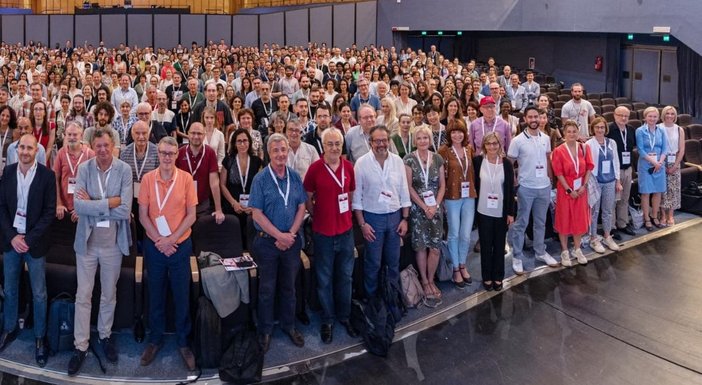
Research collaborations
As the UK's leading mitochondrial disease charity, we’re committed to building strategic partnerships with academics, clinicians, regulators, industry and other patient organisations around the world, with a strong focus on ensuring the patient voice is represented at every stage.
We work hand in hand with the three NHS Highly Specialised Services (HSS) for Mitochondrial Disease in Newcastle, Oxford and London Queen Square, as well as other major centres who offer expert care for mitochondrial disease patients, including Cambridge, Great Ormond Street, London Evelina and many others.
We understand the importance of global networks to share knowledge about mitochondrial disease and pool our resources for the benefit of the entire mito community. We’re proud to partner with patient organisations at home and abroad, representing the patient voice on a range of exciting national and international projects, all designed to advance research and develop treatments for people with mitochondrial diseases.
Back at home, we work closely with other national charities who support people with mitochondrial diseases, including Muscular Dystrophy UK, Metabolic Support UK, My Mito Mission and Leigh Network, as we believe that by working together we can make a real difference to families living with mitochondrial disorders throughout the UK.
Below you’ll find more information about a number of the national and global collaborations we’re proud to be a part of as we work together towards treatments and a cure for mitochondrial disease.
International Mito Patients (IMP)
We’re proud to sit on the board of International Mito Patients (IMP).
IMP is an umbrella organisation consisting of 18 national mito patient organisations, with members in the UK, Canada, Spain, France, Italy, The Netherlands, USA, Belgium, Bulgaria, Finland and Australia. The network aims to support and advocate for patients, fund research, raise awareness and improve worldwide education about mitochondrial disease around the globe. By joining forces, IMP aims to create a strong and consistent message on an international level.
Mito2i Mitochondrial Innovation Initiative
A Canadian consortium which aims to transform global understanding of mitochondrial health and disease, leading to better diagnoses and treatments to enhance the quality of life, and ultimately transforming healthcare by integrating mitochondrial health into routine care.
As a patient group partner in this initiative, we have the opportunity to attend workshops, collaborate on projects and share resources with other members and partners.
The case for making mitochondrial medicine part of everyday health
European Reference Network (ERN) – Mitochondrial Diseases Working Group
A working group focused on harmonising patient care across countries by setting up care guidelines and providing training opportunities.
E-mit (European Society for Mitochondrial Research and Medicine)
E-mit is a multi-disciplinary organisation aimed at advancing and disseminating knowledge of mitochondrial research and encouraging collaborations across Europe.
They engage scientists and clinicians working in mitochondrial research and medicine with patient organisations and the general public, whilst promoting equal access to high standards of specialist care, treatment, drugs, clinical trials and research.
GENOMIT
A global network of national centres that works closely with patient organisations such as The Lily Foundation to improve the diagnosis and care of patients with mitochondrial disease.
Lily Foundation represents patient interests at international GENOMIT meeting
MITGEST
MITGEST is a network that unites world-class academic excellence in mtDNA research with private sector technological expertise. It’s funded through an EU grant. Our involvement enables us to engage with PIs and students to help give them a personal perspective of mitochondrial disease.
MHRA PGCF
We’re a member of the MHRA PGFC (Medicines Healthcare Regulatory Authority Patient Group Consultative Forum) through which we can engage in meaningful dialogue with healthcare regulators on issues that impact our mito community.
The Leigh Syndrome International Consortium
A patient-driven research network that will establish global best practices of care for Leigh Syndrome patients.
Priority Setting Partnership
In 2019 we were proud to be part of the steering group involved in the Mitochondrial Disease Priority Setting Partnership (PSP), a multidisciplinary project which identified the top research priorities for patients with mitochondrial disease and the healthcare professionals who provide their care. The findings of this project can now be used to drive targeted research into the areas that matter most to patients.
If you’re based at a centre that cares for patients with mitochondrial disease, we’d love to talk to you about all the ways we can work together for the benefit of patients. Please contact [email protected] (Patient Engagement & Advocacy Manager).
For further support for mito patients from The Lily foundation, please take a look at our mitochondrial disease support page.

